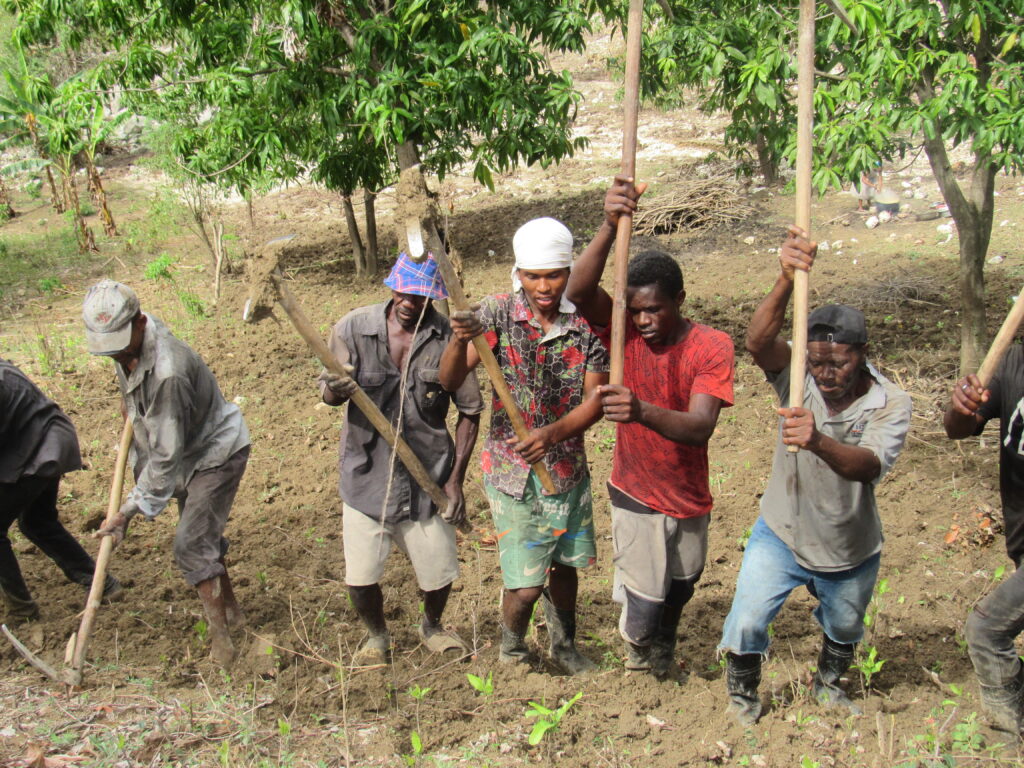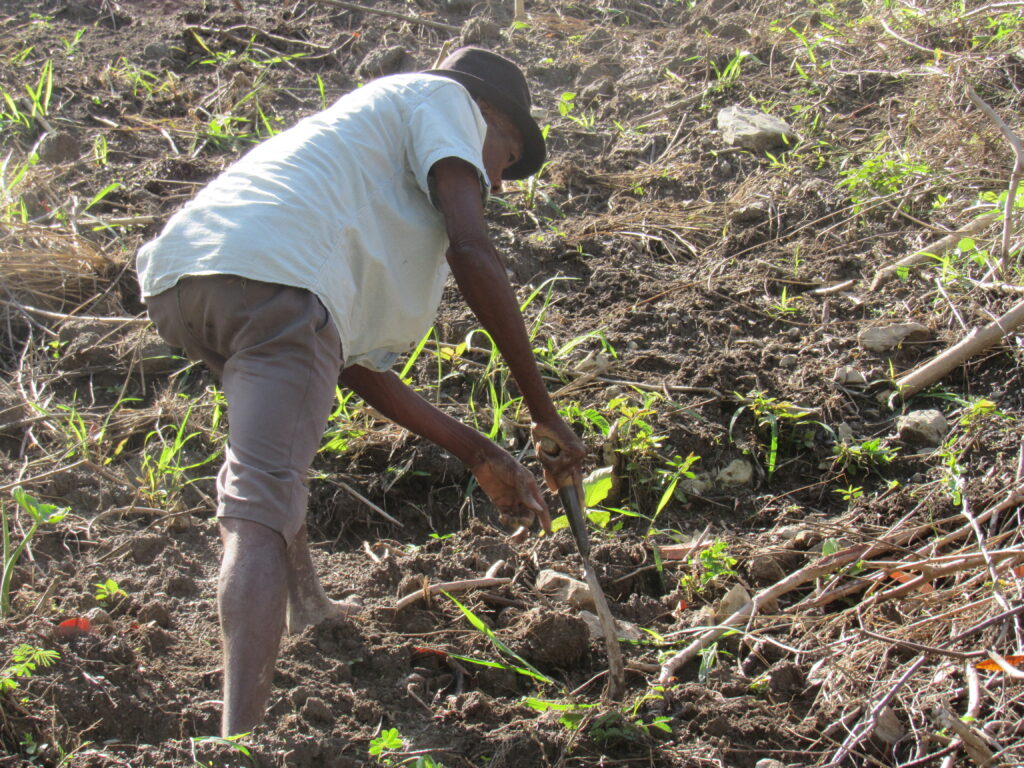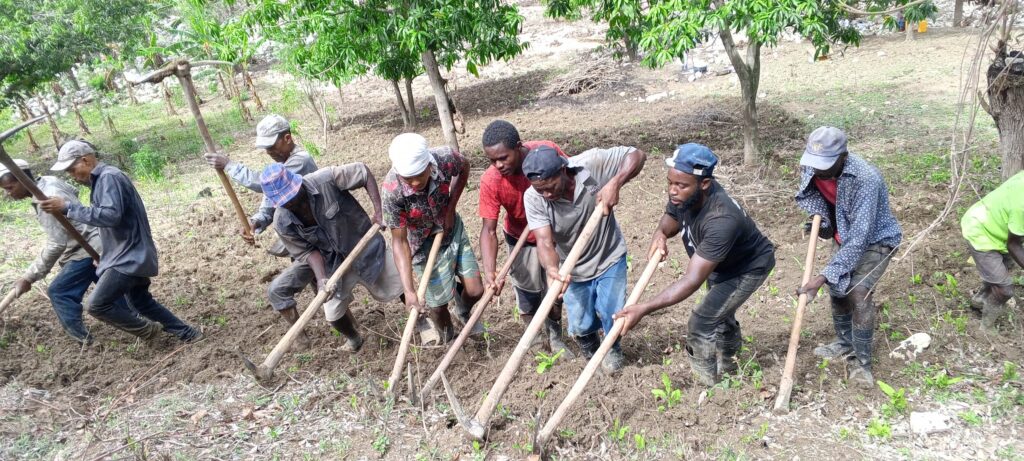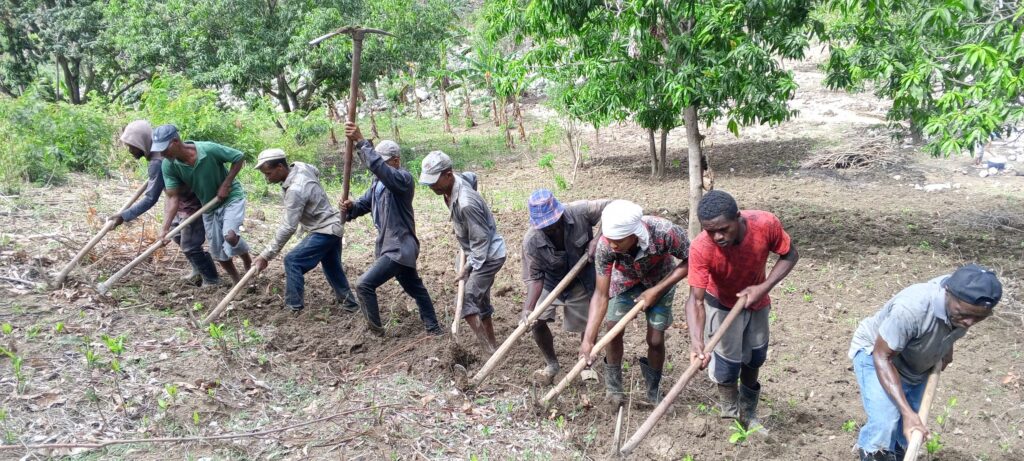
The word konbit, which means “work together,” is an important part of Haitian culture. It’s more than just working together on farms—it’s a way for people to come together as a community. Farmers, gardeners, and others join forces to help each other with planting, harvesting or other community activities. This tradition brings everyone closer and shows the strength of working together.
Today we are going to talk about kobit with farming. The farmers gather to help each other prepare, plant and harvest their crops. Everything is done by hand, so working together makes it easier for each farmer to get their field planted and harvested. Planning a konbit takes a lot of careful coordination. Organizers need to start planning at least 15 days beforehand. This gives them enough time to buy food for everyone to share during the event. They also need to make sure they have between 15 to 30 people coming to help to make sure the work goes smoothly. They plan which field they will do each day for the farmers and switch until each farmers field is completed.
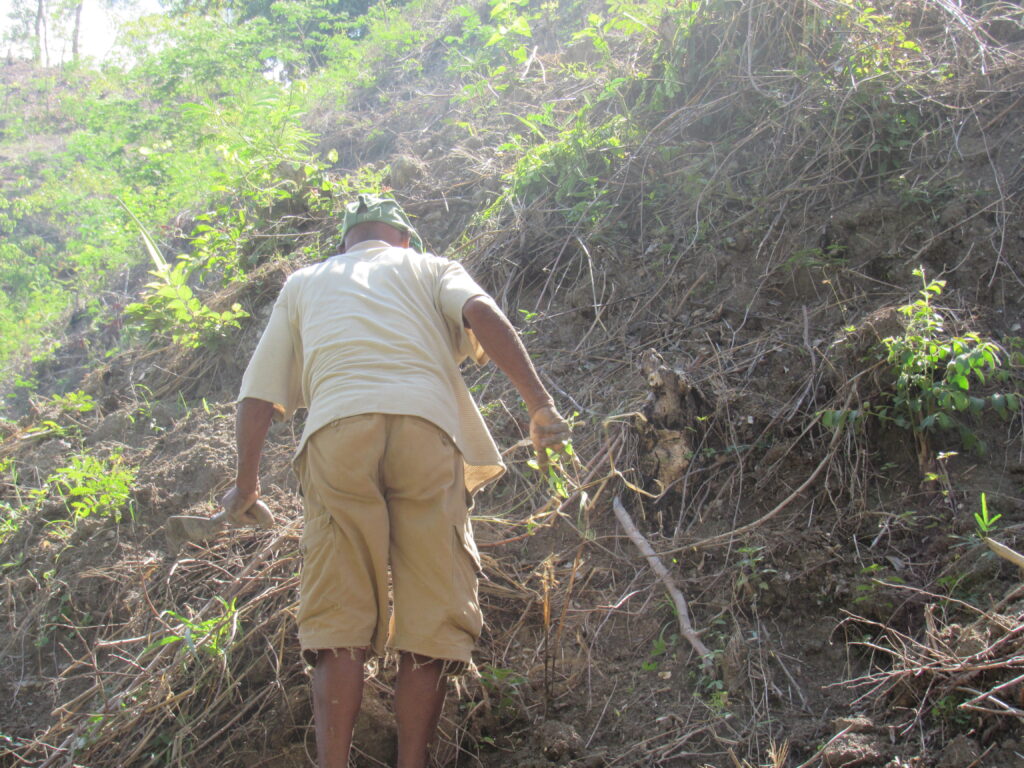
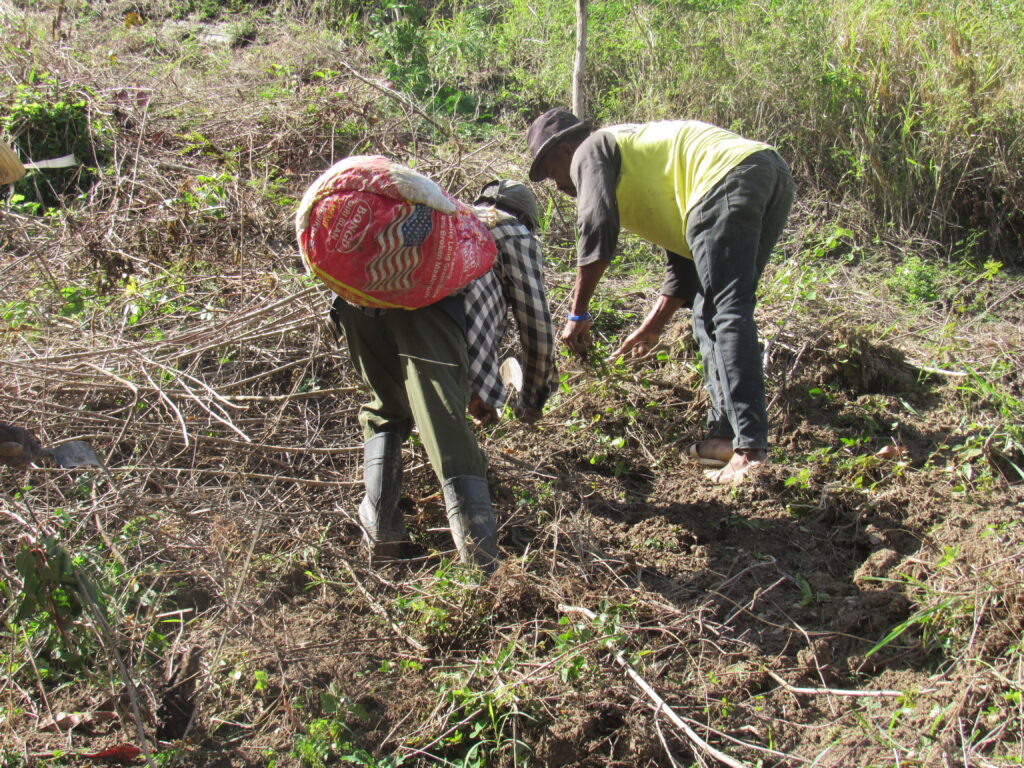
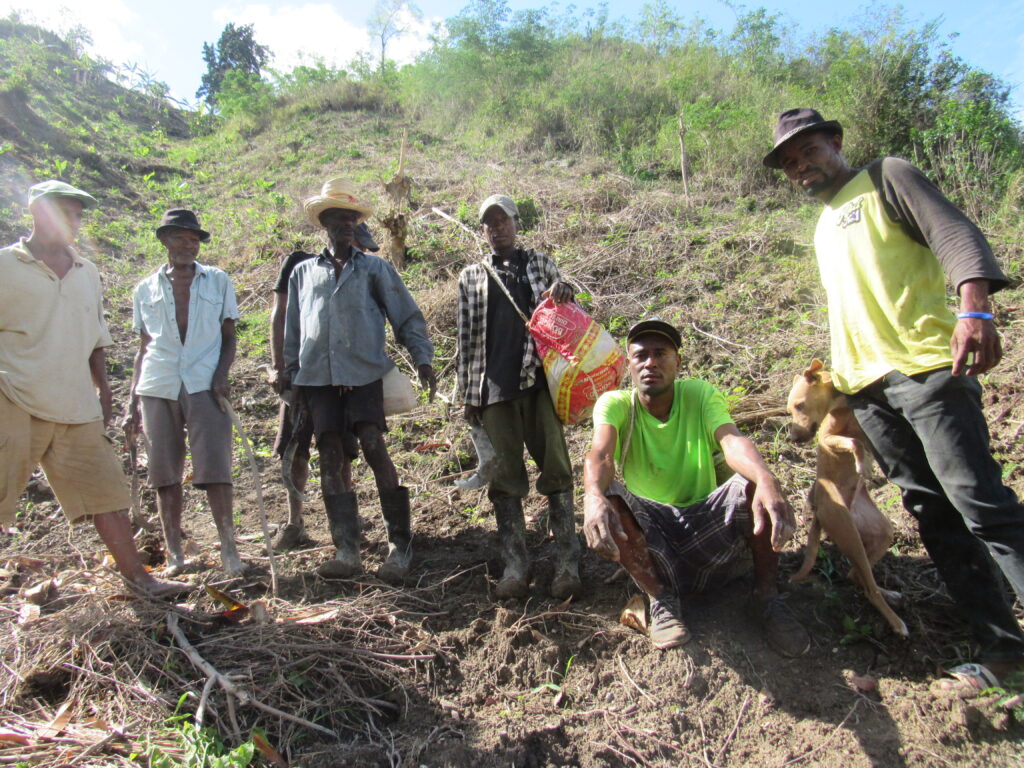
The men usually do the garden work while a few ladies come to cook for everyone. They start early in the morning and work until they finish or the sun goes down. They do different farming tasks like plowing the soil, cutting grass, or removing weeds to get the land ready for planting. After that, they let the soil rest for about 8 days before they start planting. During planting, everyone works together to plant crops in the soil they prepared. This teamwork helps them plant faster and better. It also makes them feel like they’re part of a team, working together towards a common goal. When it’s time to harvest, they organize another konbit. This helps them finish harvesting quickly, doing in one day what would normally take much longer for one person to do alone.
As the participants gather for the konbit, they often organize themselves into rows to work efficiently. Together, they engage in rhythmic singing and chanting, not only to maintain a steady pace but also to uplift each other’s spirits as they work. Moving in unison, they till the earth, preparing the land for planting as they traverse the fields. The harmonious blend of voices and the collective rhythm of their movements create a sense of unity and shared purpose, driving them forward to get the work done.
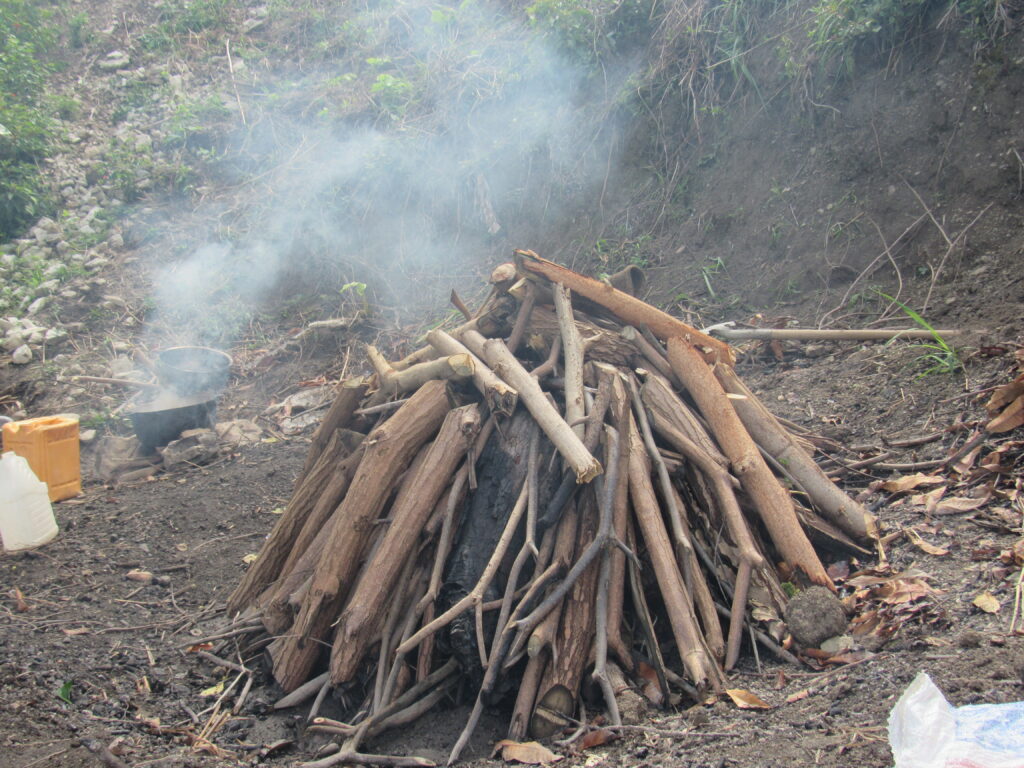
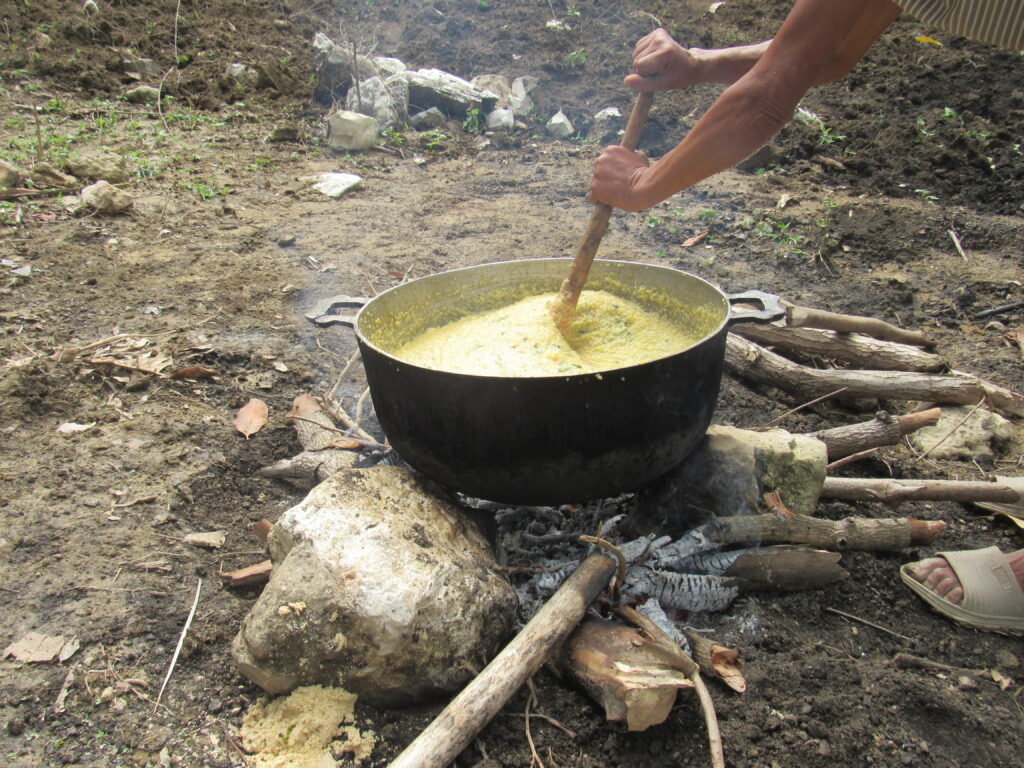
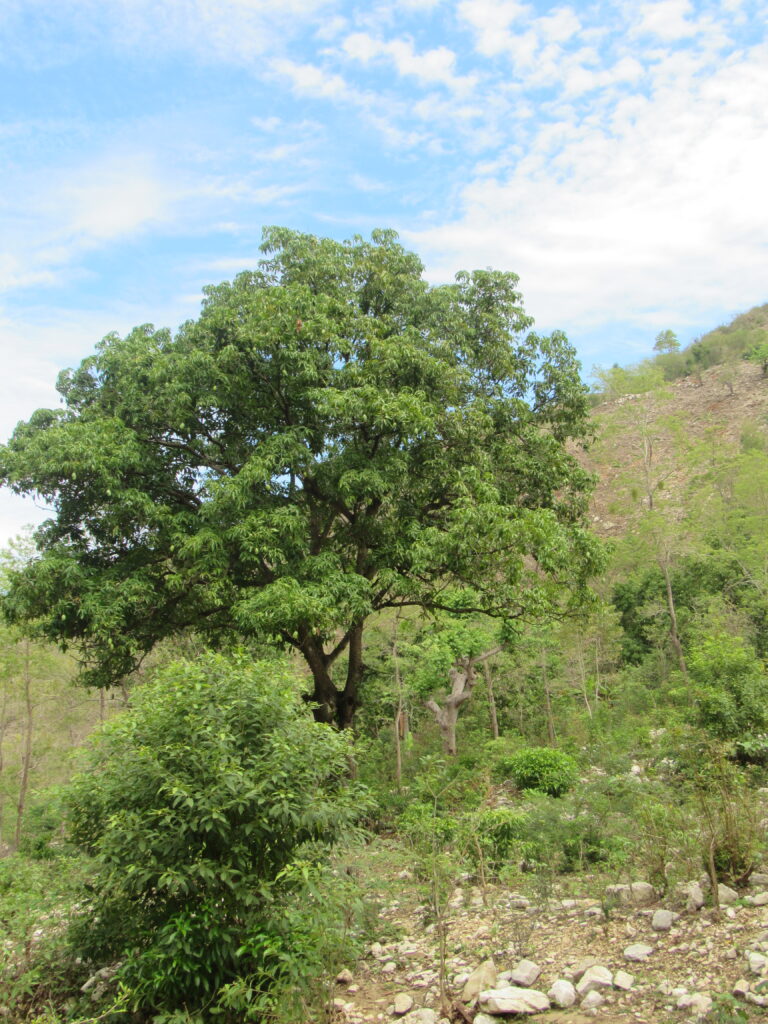
In addition to working together in the fields, participants in the konbit tradition also take time to share meals as a group. Several dedicated women, play an important role in this aspect of the konbit. They gather early in the morning to prepare meals using locally sourced ingredients, which are prepared directly at the fields where the men are working diligently. This communal mealtime not only nourishes the bodies of the hardworking participants but also serves as a moment of respite amidst the day’s labor. As they sit together, enjoying the fruits of their effort, bonds are strengthened, stories are shared, and friendships are forged, further cementing the sense of unity and cooperation that defines the konbit tradition.
The konbit tradition in Haiti is a testament to the power of community and collaboration. More than just a farming practice, it serves as a cornerstone of solidarity and mutual support. By pooling their resources and labor, community members uphold a tradition of teamwork that has been vital for generations. This system fosters a strong bond among participants, who work together without the need for paid laborers. Instead, they share meals as a token of appreciation for each other’s hard work. This age-old practice not only ensures successful harvests but also strengthens the community, perpetuating a way of life rooted in cooperation and solidarity.
